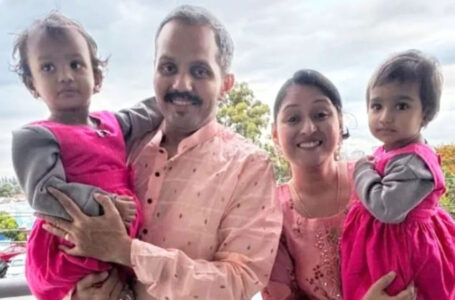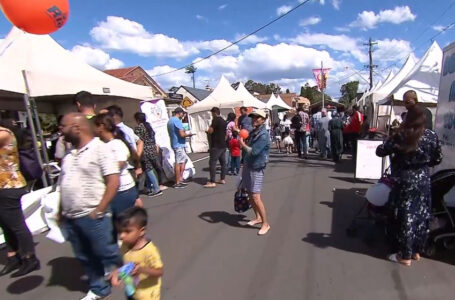Interview with Srini Ranganathan, Euclove
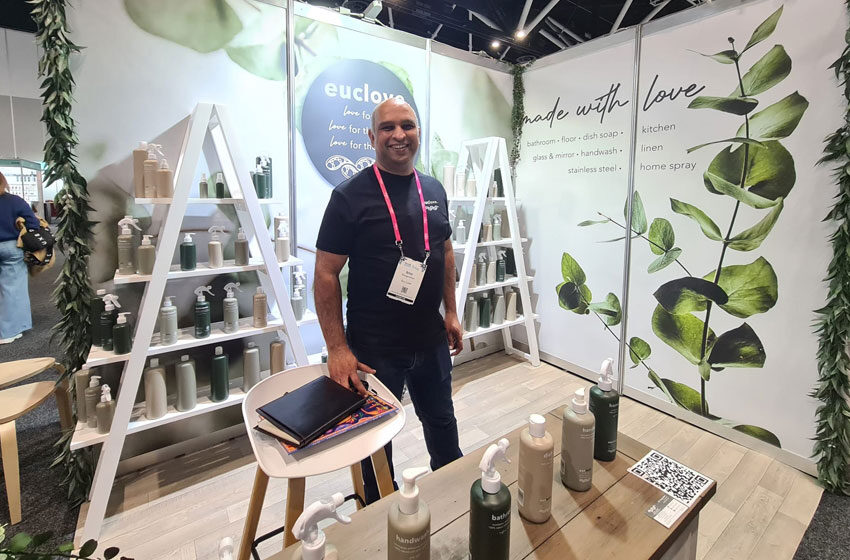
Say something about your personal background. How did you start your career?
Srini Ranganathan
I was born in Chennai, India; in 2002, I found work in New Zealand so I lived there for two and a half years.
I found work in Australia, so I moved there in 2005. Although I started working as a developer, I worked my way up until I started my business. My wife was a surgeon but we were entrepreneurial and financially savvy, but we didn’t have a business idea. My mother-in-law is a seventh-generation Aussie; she was a single mother who raised five kids by herself. Also, the kids had asthma allergies, hence she used eucalyptus and Patri because that’s what she grew up with. Whereas my mum used camphor to keep the insects away and we always use natural things at home. My sister-in-law Heidi came and she used to manage some retail stores she brought a bottle of some cleaning solution.
The product had nice packaging but it was too expensive for the product amount. So we always had this idea of what can we do with it? We started to find ingredients we wanted to use and so normally what I’ve learned is that people will look at what’s in the market. And they’ll say make me this. Hence, we looked at what’s already there. We started with coconut oil to make soap and then we looked at the essence that lots of people were using at home and we made our own blend of oils and that’s how the brand got started.
What was your first big sale or the first big confirmation which indicated that people loved your product?
Srini Ranganathan
My sister-in-law came home and we were experimenting with maybe 20 to 23 different batches of products. So we’re learning to see what works and what doesn’t work. After lots of trial and error, we thought we had a product that we were happy with. My sister-in-law took asked me if she can take the product into the store to get feedback from people. We thought that it was a good idea to check if there is a demand in the market. So we made a small batch of 10 kilos with some labels with my name and a phone number to get feedback directly from the customers.
What was the big ”Aha” moment for you?
Srini Ranganathan
Hiedi(Sister-in-law) took all the bottles to the store and then she called back a week and a half later, saying she sold all the bottles. This was a confirmation that there is a market for such products. But the ”aha” moment was when I was working for a bank, at lunchtime I got a phone call from a person asking where they can buy more products. This happened around 2015-16.
Could you tell me something more about your products?
Srini Ranganathan
The cleaning products are 100% natural and throughout the manufacturing process, no synthetic chemicals are used. Plus insurance that’s one of our best-selling products.
Do you have a large database? Do you do B2B or B2C?
Srini Ranganathan
We have been selling our products directly since the very beginning. if the customers like our products, they repeat their orders.
What kind of businesses or people buy your products?
Srini Ranganathan
Mostly brick and mortar organic stores, to building structures. And we also have people who do a lot of things of interest and we can further discuss it.
How have you scaled your company from where you were at the beginning to today where you are?
Srini Ranganathan
When we did our first trade show, my parents were actually here in Melbourne. My dad was attending the kitchen, and I was labelling the products, so it was a family affair and not a one-man army venture. The biggest thing I find in hindsight is that I think, especially now when you come to a different country and start something, I think we tend to lack confidence. I think we need to be more confident in ourselves that we know what we’re doing and that we can get things done. That’s what I’ve learned in terms of scaling.
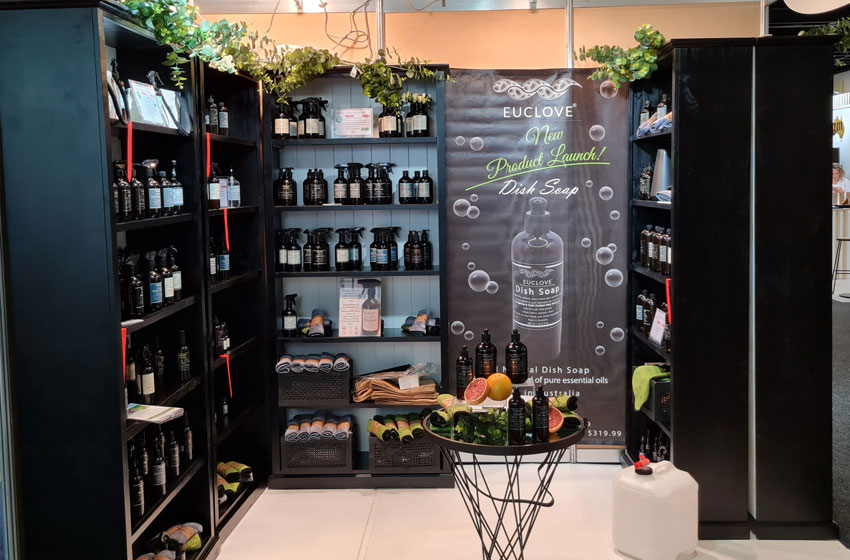
We’re still in the process of scaling. Moreover, when we started in 2017, we had zero stores. And at the moment, we’re in about 800 stores across Australia. We’re selling in Hong Kong and Taiwan. So we’ve got our export market as well. The hardest thing has been to find the right people and to keep the right people. So, we’ve built a strong team around; starting a business takes money.
So one of the things that we did was put the money that we had saved up in our super, bought a building, and set it up like a factory. So we own the factory, the company pays rent, and the rent goes back to hospitals. So we are paying ourselves instead of paying someone else’s mortgage on a commercial property. I mean, scaling is not easy. Also, you will encounter different problems one after the other, so it is ideal to keep learning from your mistakes.
Have you been helped by any mentors or any sort of support structure outside your family from now?
Srini Ranganathan
I have had lots of mentors. Most of those mentors don’t even know who we are. I’m always looking to learn from other people’s mistakes- what works and what doesn’t work. We watched a lot of Shark Tank and took notes from every single episode that we could find and watch.
So you wanted to watch worst-case scenarios that inspire you, no matter what?
Srini Ranganathan
No, it was not about worst-case scenarios getting into my head for me; it was about seeing different business models, what works and what doesn’t work and understanding. And there was another TV show called The prophet that was very useful to watch. So along the way, we got introduced to some people that were helpful to learn from.
Inspiration is everywhere. It depends on how you look at it. You can look at someone that’s more successful than you are. And you can go, you know, be intimidating or can be inspired. It’s up to you.
How has the pandemic treated you- Was it good, bad, same or unaffected?
Srini Ranganathan
It’s been good and bad both, and we had to scale up. When we bought the building, we would move in two years from when we purchased the building in 2018. But we ended up moving in before because we couldn’t keep up; now, we’ve moved from the kitchen to the garage. So we had to move the factory faster and scale-up. That was good, but the lack of packaging, materials, and other things made it challenging.
What percentage of this product is made in Australia and overseas? Tell us a bit about the actual ingredients?
Srini Ranganathan
The product is 100% Natural; it’s agricultural products, basically. We get coconut oil, eucalyptus, Petri, camphor clover, metal lemongrass, and lavender, and we also sourced them from their native places. For instance, coconut oil comes from the Philippines or Malaysia. We tried to get it from India, but it was too expensive, and since we’re making soap, we don’t need food grade. So to get the grade that we wanted in volume, we got them from Malaysia.
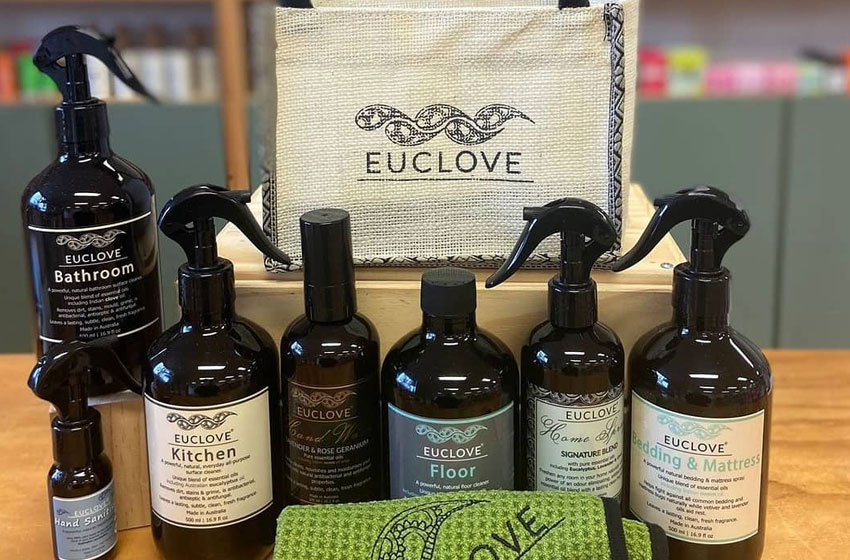
On the other hand, eucalyptus and tea tree are native here, so we got them from Australia and New South Wales. Clove, menthol, camphor, lemongrass, neem oil, and palmarosa come from India. So I found a family business that has been in the aromatics industry for 25 years. But the business owner’s son is in Melbourne, so I put an inquiry to IndiaMART. I got a call from his son in management, so I’ve been working with him. His name is Jerry. I’ve been working with him for the last maybe a year and a half.
What would you qualify as a churn of your business? Like, from a consumer perspective, have you? Do you usually have long-term customers, or have you had people come in to try it and drop it off?
Srini Ranganathan
It depends on the kind of customer depends and on lots of things because our products are consumable; if someone buys them and likes them, they will re-purchase them. They’re going to keep coming back. We’ve got customers that bought from us even before we launched the market, we had a website, and we got an order from day one, and that customer is still a customer today. On the wholesale side, we retained about 60% of our customers, and on the DTC direct-to-consumer survey, about an 80% consumer retention rate. Finally, it comes down to the product and how much people like it.
Do you believe in the whole layman’s terms of 20 per cent of your effort leading to 80 per cent profit?
Srini Ranganathan
No, it doesn’t work in business.; if I were to speak from my personal experience, you have to look at every opportunity that comes as if it’s a lost opportunity because you didn’t know where it could lead. If my parents or grandparents hadn’t done what they did, I wouldn’t be where I am today. I don’t think there is any magic number that anyone could quantify regarding the percentage of effort to get the desired result.
Last question: Where do you see the brand in the next five years? Where do you see yourself?
Srini Ranganathan
I want to double the business; so far, we’ve doubled the business every year. I want to keep doing that for as long as I can. I know at some point, it’s going to slow down. And that’s when we look at other markets.
We’re focusing on the seller market at the moment, but we would love to expand gradually. The Indian market is very interesting with the full private label model, such as alliances and all the big players coming into retail; that’s exciting. There are lots of opportunities there. Global demand for cleaning products is evident from the customer base in Taiwan, Greece, Malta, etc. Hence, it all comes down to execution where we’re going to take.
It has been an absolute pleasure talking, and your success story will add value to many readers.



